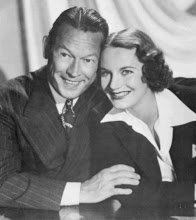Walking Wounded
"The observant will have noticed that we hear little from the troops in Iraq and see almost nothing of the wounded. Why, one might wonder, does not CNN put an enlisted Marine before a camera and, for 15 minutes without editing, let him say what he thinks? Is he not an adult and a citizen? Is he not engaged in important events on our behalf?"
"Sound political reasons exist. Soldiers are a risk PR-wise, the wounded a liability. No one can tell what they might say, and conspicuous dismemberment is bad for recruiting. An enlisted man in front of a camera is dangerous. He could wreck the governmental spin apparatus in five minutes. It is better to keep soldiers discreetly out of sight."
"So we do not see much of the casualties, ours or theirs. Yet they are there, somewhere, with missing legs, blind, becoming accustomed to groping at things in their new darkness, learning to use the wheelchairs that will be theirs for 50 years. Some face worse fates than others. Quadriplegics will be warehoused in VA hospitals where nurses will turn them at intervals, like hamburgers, to prevent bedsores. Friends and relatives will soon forget them. Suicide will be a frequent thought. The less damaged will get around."
Exactly! The article (from a conservative site, mind you) raises issues that are simply not being talked about. Whether you're a "bring'em home now" type, or a "stay the course" person, you need to ask yourself where the veterans are. We certainly hear about the deaths, but not about the survivers who are leaving substantial parts, both physical and mental, of themselves, on the battlefields of Iraq and Afghanistan. You don't see them anywhere, as if they don't exist, and as this article states, it's because they really don't exist to the people in power. Those "people in power" include the media. You would think there would be plenty of "human interest" stories out there for the media. We do hear from some, but for the most part, they're the ones who hadn't lost limbs.
I had my misgivings about the elimination of the draft when it ended back in the 70s. It was very clear back then that among other factors, the inclusion of the general population in the military had a lot to do with ending that war. It was the returning vets, many wounded, many that were forced to serve in the first place, that added their voices to that anti-war movement. They spoke out on the true nature of that war, but more importantly, they didn't have to wait until they returned to voice they opinions. For those of you who were not around back then, we got to see them on TV, every night, being interviewed by non-"embedded" reporters. We saw our wounded on TV, both in the battlefield, and here at home. They weren't being hidden from us like they are now. The military said they learned lessons from Vietnam, and this is one of them. If they can keep the soldiers quiet, they'll have less an impact on the American publics' opinion. They also learned to keep much tighter control on the media.
This time around the government was ready. Two of the most powerful voices of the Vietnam war, the soldiers and the media, have been softened to a whisper. If you think that media is properly critical of the war now, it's nothing like it would be if our journalists were allowed to roam free over there. It's hard to hide some things because there are other countries' reporters roaming around there that avoid being restrained by our military. But they pay a high price for their independence. How many times have you heard reports that American troops have killed a foreign journalist? Sometimes, those of our allies.
It's really shameful that our government cares so little for our troops, but acts so concerned that their morale will be hurt, if they hear from us, the things they already know first-hand. But that's only while they're still fighting. Once they're wounded and sent home, they reverse the process, and see to it the vets don't speak out and hurt our morale. At least that's what they're trying to prevent.
Here are a few related posts:










0 Comments:
Post a Comment
<< Home